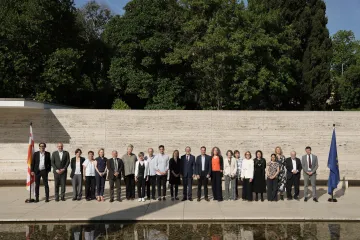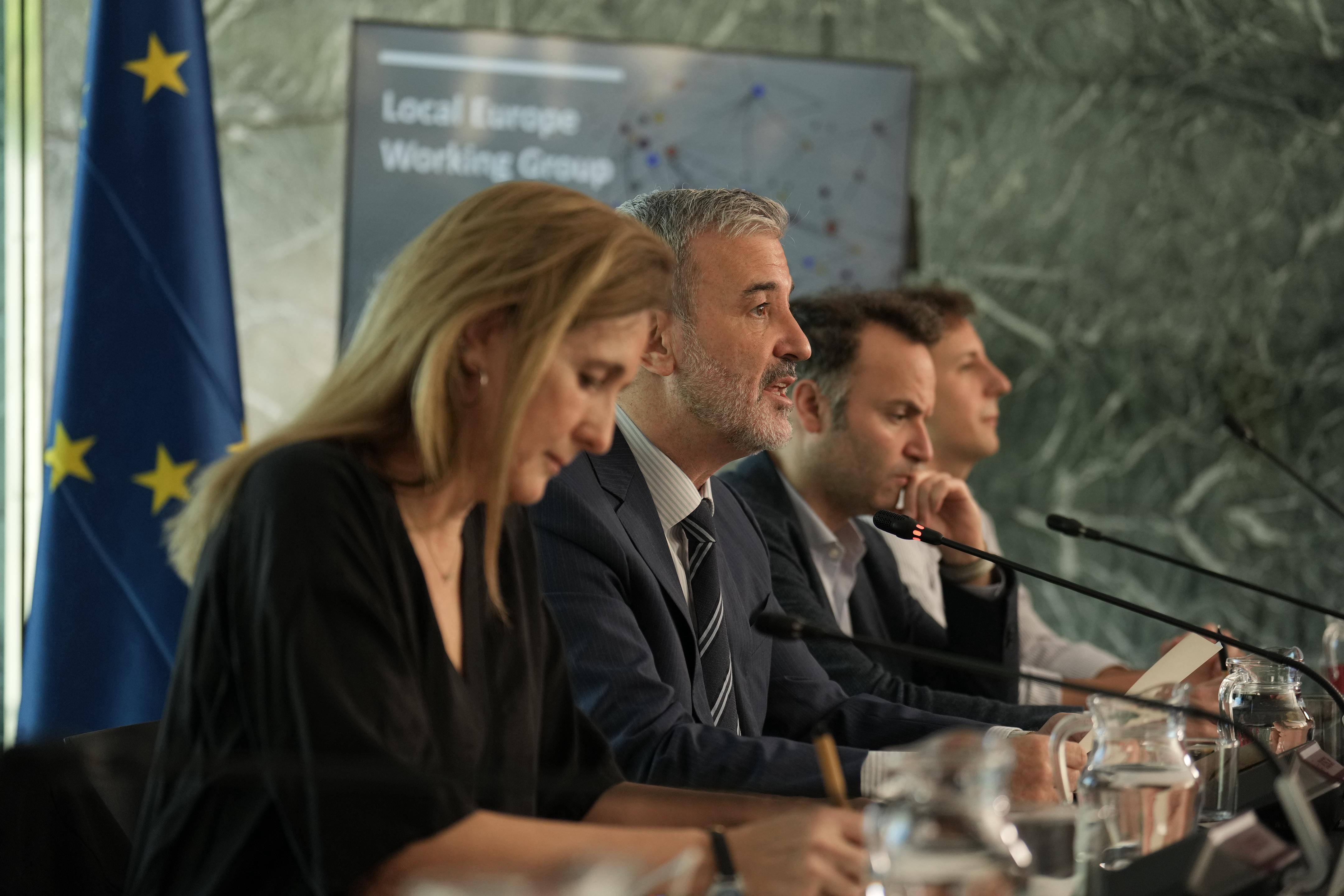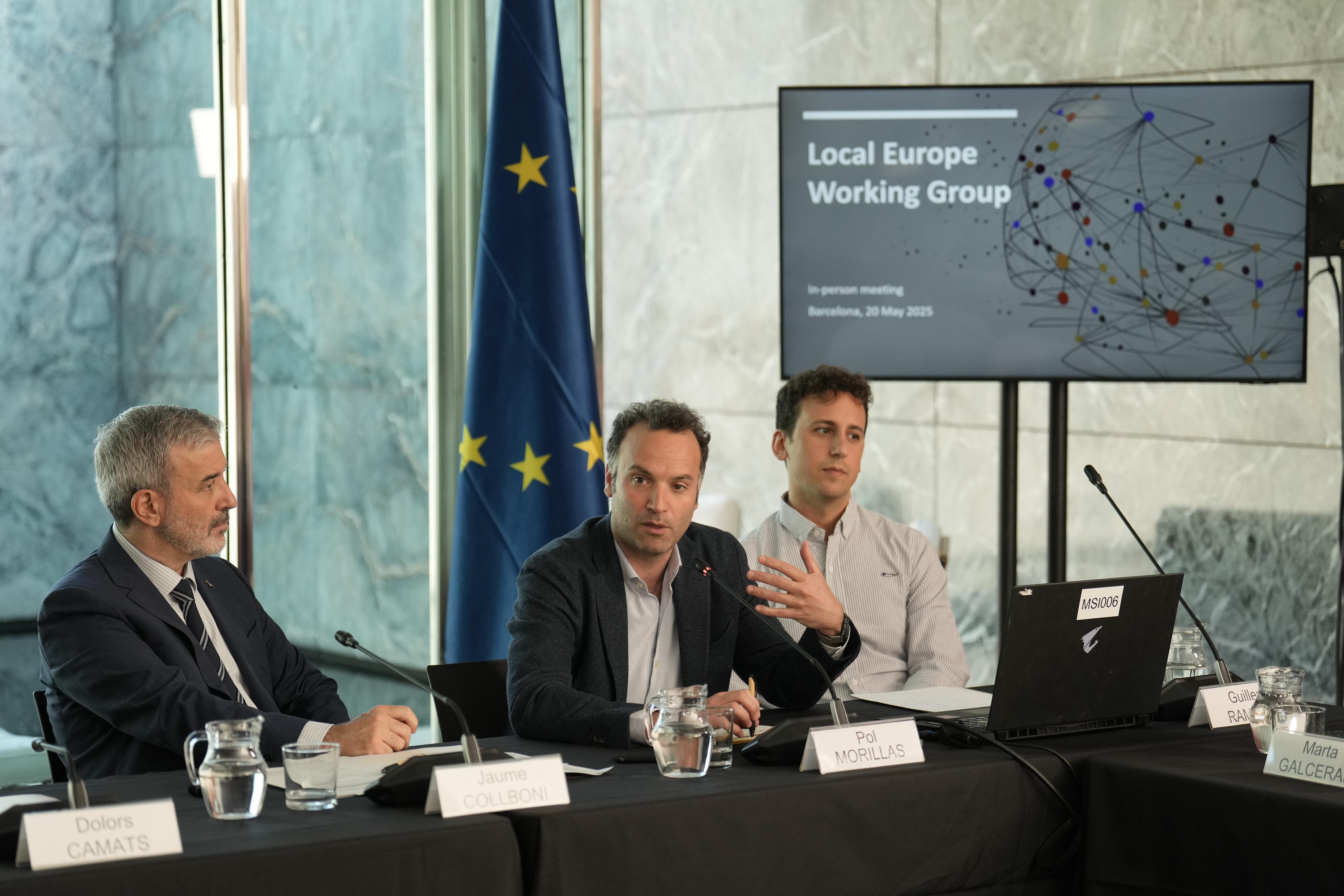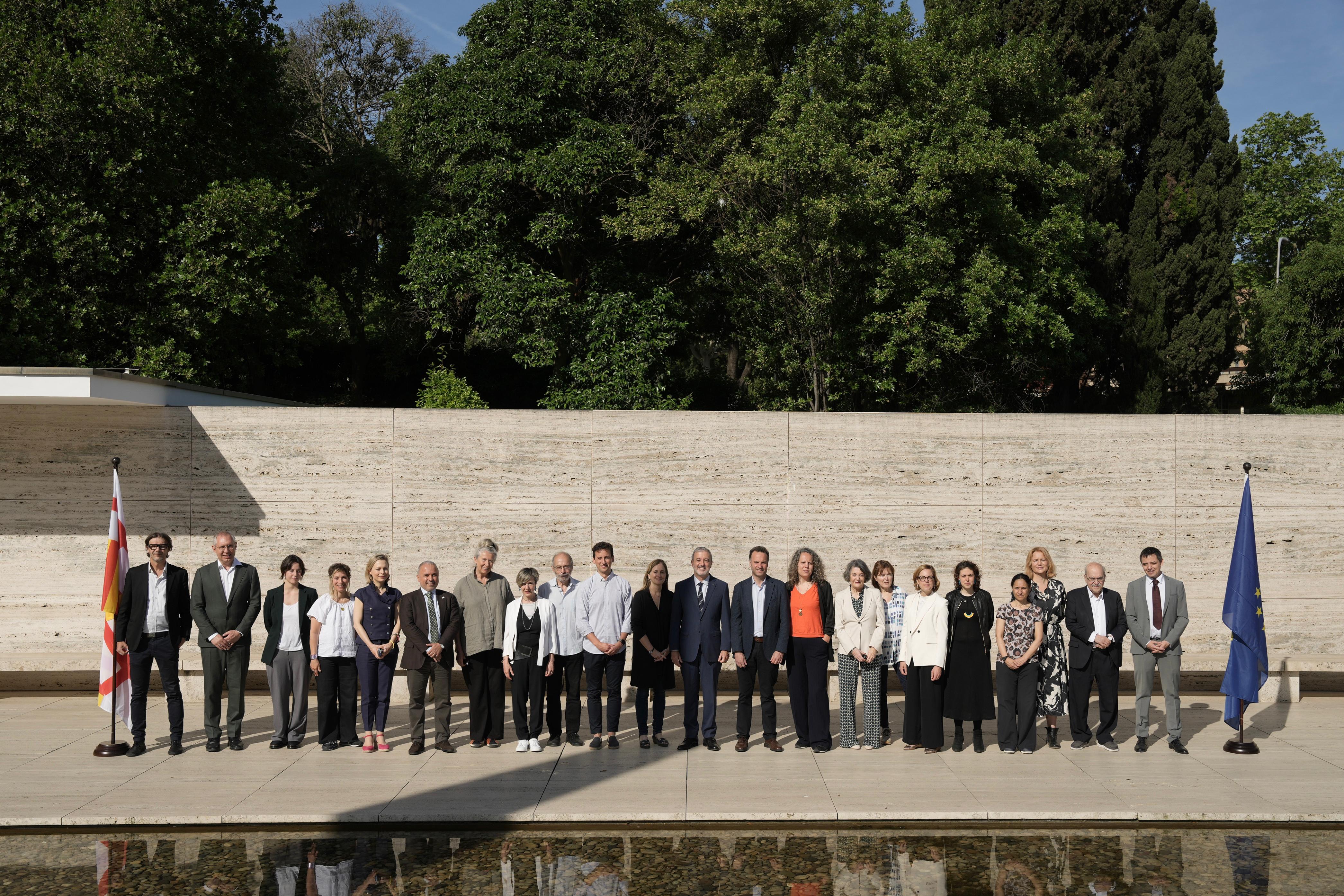CIDOB and Fundació Catalunya Europa launch the "Local Europe" project, supported by the Barcelona City Council

The Local Europe project (Europa Pròxima), supported by the Barcelona City Council and coordinated by CIDOB and Fundació Catalunya Europa, aims to strengthen the role of cities within the institutional architecture and decision-making processes of the European Union.
A group of international experts gathered in Barcelona for the first meeting of the project’s working group. The initiative seeks to develop proposals to reinforce the institutional and political voice of cities at the European level, both structurally and in three specific areas of public policy: housing, climate action, and innovation and competitiveness.

The Mayor of Barcelona, Jaume Collboni, opened the inaugural meeting of the working group at the Mies van der Rohe Pavilion, accompanied by CIDOB’s Director Pol Morillas, the Director of the Fundació Catalunya Europa, Dolors Camats, the Commissioner for European Affairs, Mar Jiménez, and the working group’s coordinator, Guillem Ramírez Chico. "It is at the urban level where European integration becomes tangible and meaningful for citizens—where European policies are translated into concrete realities and where the European project is built and gains its legitimacy," Collboni highlighted in his opening speech. He explained that the initiative seeks "recognition from European institutions so that cities are regarded as key actors both in defining and implementing solutions to global challenges."

Pol Morillas, Director of CIDOB, stated that "in a world where the European and international spheres are dominated by geopolitics, CIDOB’s goal with the Local Europe project is to connect the international and local dimensions. To act as intermediaries in this complex world with a plurality of actors operating internationally, among which cities stand out." "The Local Europe project seeks to give voice to cities, not only because it is important to listen to them, but also because they are the first to deal with citizens’ problems." For this reason, Morillas added, "the working group starting today aims to link cities with European solutions."
In a world where the European and international spheres are dominated by geopolitics, CIDOB’s goal with the Local Europe project is to connect the international and local dimensions. To act as intermediaries in this complex world with a plurality of actors operating internationally.
— Pol Morillas
Dolors Camats, Director of the Fundació Catalunya Europa, added that "cities are the first and best line of defence against Europe’s major contemporary challenges, such as authoritarianism, which threatens the welfare state and democratic values. It is in cities that public services are delivered and democracy is built day by day." She therefore encouraged the experts "to be bold and creative, to have the courage to challenge the status quo, as Maragall once did. Because defending the central role of cities in Europe is to defend a freer, fairer, and more democratic Europe."
The working group—comprising experts, representatives of city networks and municipalities, academics, and individuals with experience in cohesion policy—aims to develop a set of policy proposals to enhance the role of cities at the European level.
To this end, it seeks to critically and constructively analyse the current role of cities in European governance, formulate concrete and viable proposals to strengthen their institutional and political influence, and contribute to a vision of a "Local Europe" that reinforces the local dimension of the European project.
The outcome will be a final report containing recommendations and an advocacy agenda to serve as a reference for European urban policies, particularly that of Barcelona. The final report will be published in March 2026.
